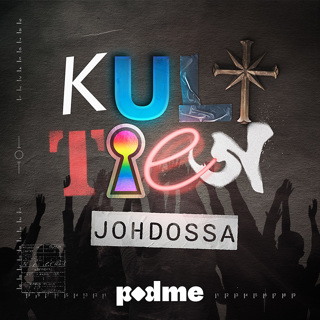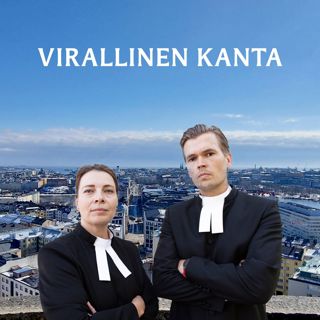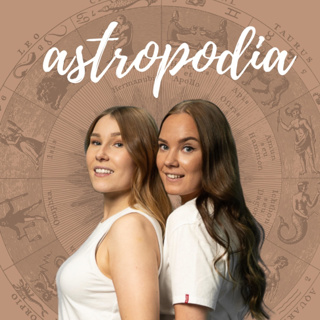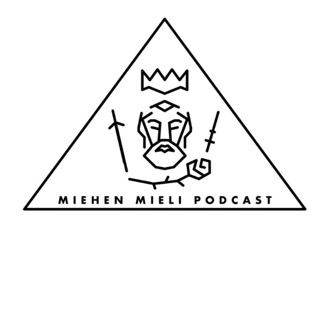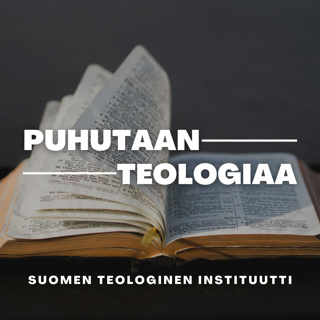
Nicaea, Second Council of (787)
The Seventh General Council was convoked by the Empress Irene at the instigation of the Patr. *Tarasius of Constantinople in order to end the *Iconoclastic Controversy. Cross, F. L., & Livingstone, E. A., eds. (2005). In The Oxford dictionary of the Christian Church (3rd ed. rev., p. 1152). Oxford University Press.
28 Marras 202211min

Off the Cuff | LAW OF TWO WITTNESS | Conversation with Hebrew Israelite "Dennis"
LAW OF TWO WITTNESS | Conversation with Hebrew Israelite "Dennis"
27 Marras 202222min

Third Council of Constantinople | AD 680
Third Council of Constantinople The Third Council of Constantinople, counted as the Sixth Ecumenical Council by the Eastern Orthodox and Catholic Churches, as well by certain other Western Churches, met in 680–681 and condemned monoenergism and monothelitism as heretical. It defined Jesus Christ as having two energies and two wills (divine and human). Also: 3rd Council of Constantinople; Council of Constantinople; Third Constantinople Council; Third Council of Constantinople (680-81)
26 Marras 202215min

Second Council of Constantinople
Byzantine Church Era (451 – 1054) › Second Council of Constantinople The Second Council of Constantinople is the fifth of the first seven ecumenical councils recognized by both the Eastern Orthodox Church and the Catholic Church. The main work of the council was to confirm the condemnation issued by an edict in 551 by the Emperor Justinian against the Three Chapters. Also: Second Council of Constantinople (553)
25 Marras 202212min

Chapter XIV. —The Natural Invisibility of the Father, and the Visibility of the Son Witnessed in Many Passages of the Old Testament. Arguments of Their Distinctness, Thus Supplied.
Chapter XIV. —The Natural Invisibility of the Father, and the Visibility of the Son Witnessed in Many Passages of the Old Testament. Arguments of Their Distinctness, Thus Supplied. Tertullianus, Quintus. Tertullian - Against Praxeas (p. 31). Lighthouse Publishing. Kindle Edition.
23 Marras 20229min

Chapter XIII. —The Force of Sundry Passages of Scripture Illustrated in Relation to the Plurality of Persons and Unity of Substance
Chapter XIII. —The Force of Sundry Passages of Scripture Illustrated in Relation to the Plurality of Persons and Unity of Substance. There is No Polytheism Here, Since the Unity is Insisted on as a Remedy Against Polytheism. Tertullianus, Quintus. Tertullian - Against Praxeas (p. 28). Lighthouse Publishing. Kindle Edition.
22 Marras 202214min
![[Cross Exam +Clossing] "Who is the Holy Spirit" |Trinitarian -VS- Oneness Pentecostal? [PART 4]](https://cdn.podme.com/podcast-images/B7BACDC6627CBF35E00059E0335A4CB6_small.jpg)
[Cross Exam +Clossing] "Who is the Holy Spirit" |Trinitarian -VS- Oneness Pentecostal? [PART 4]
[Cross Exam +Clossing] "Who is the Holy Spirit" |Trinitarian -VS- Oneness Pentecostal? [PART 4]
19 Marras 202254min
![[Rebuttals] "Who is the Holy Spirit" |Trinitarian -VS- Oneness Pentecostal? [PART 3]](https://cdn.podme.com/podcast-images/B7BACDC6627CBF35E00059E0335A4CB6_small.jpg)
[Rebuttals] "Who is the Holy Spirit" |Trinitarian -VS- Oneness Pentecostal? [PART 3]
[Rebuttals] "Who is the Holy Spirit" |Trinitarian -VS- Oneness Pentecostal? [PART 3] YouTube Link: https://youtu.be/-AV1MMLjKy4 Link Tree: https://linktr.ee/Bnero34
19 Marras 202231min



